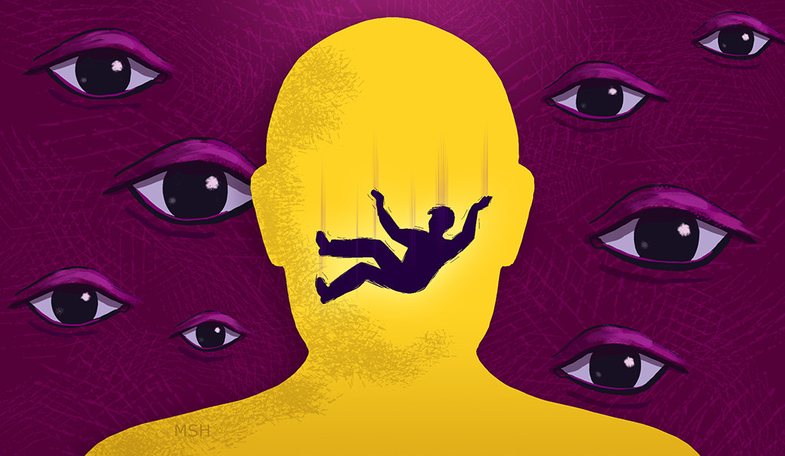
By paranoia we mean a state characterized by delusions, unwarranted jealousy, or exaggerated self-importance. In a shorter explanation we can simply call it "unjustified suspicion and distrust of other people." (via Oxford Languages)
Based on this definition paranoia does not seem to bring any good and yet, experts raise the question:
"When a good thing is a lot, more than it should be, it can be bad, but what about cases where there is very little of a bad thing? "Is there such a thing as 'healthy paranoia'?"
Except in clinical cases, we can observe paranoia on a daily basis in daily life. To a greater or lesser extent, we all experience paranoid feelings on occasion, for the simple reason that fears and doubts serve some quite useful functions. Typically, paranoia begins when something disturbing or unexpected happens - the dismissal of a boss, the loss of a close colleague, gossip that people are being fired.
Such events create uncertainty and we deal with the unknown in an attempt to make sense of the events. This mental processing sets in motion a common psychological reaction known as "hypervigilance." Suddenly, to understand things, we begin to pay close attention to everything that happens around us.
Whatever the situation, every little word and action seems to be endowed with personal meaning. The more we worry, the more we notice. And the more we notice, the more we worry.
Sigmend Freud said:
"The paranoid person does not project on the sky, but on something that is already there."
In other words, instead of being "crazy", the paranoid individual - especially someone who is prudently prudent - is actually an extremely keen and often penetrating observer, according to Freud.
However, scientifically this is not always the case, although paranoia at levels that are not considered problematic or otherwise known as "measured paranoia" may be a sign of high emotional intelligence.
"Paranoja e shëndetshme ose ankthi i shëndetshëm mund të na mbajnë të vetëdijshëm dhe vigjilentë si një mekanizëm mbrojtës, duke mbrojtur veten nga kërcënimet e mundshme", shprehet Adam Borland, psikolog klinik.
Ai rikujton se si e pajisi shtëpinë me maska dhe letër higjienike, që në periudhën kur as nuk diksutohej se kishim të bënim me një pandemi - si një shembull të "paranojës së shëndetshme".
Edhe studiuesit në Universitetin e Cambridge, për shembull, kanë zbuluar se shqetësimi për ndryshimin e klimës ka çuar në ndryshime të sjelljes që mund të çojnë në zgjidhjet e vetë problemit.
However, we need to be aware and understand that paranoia can lead us to a place where those feelings can become problematic. It is important not to go overboard and know what is and is not true, what is currently happening and what is just happening in our minds.

Source: Harvard Business Review, CNN, Oxford Languages





